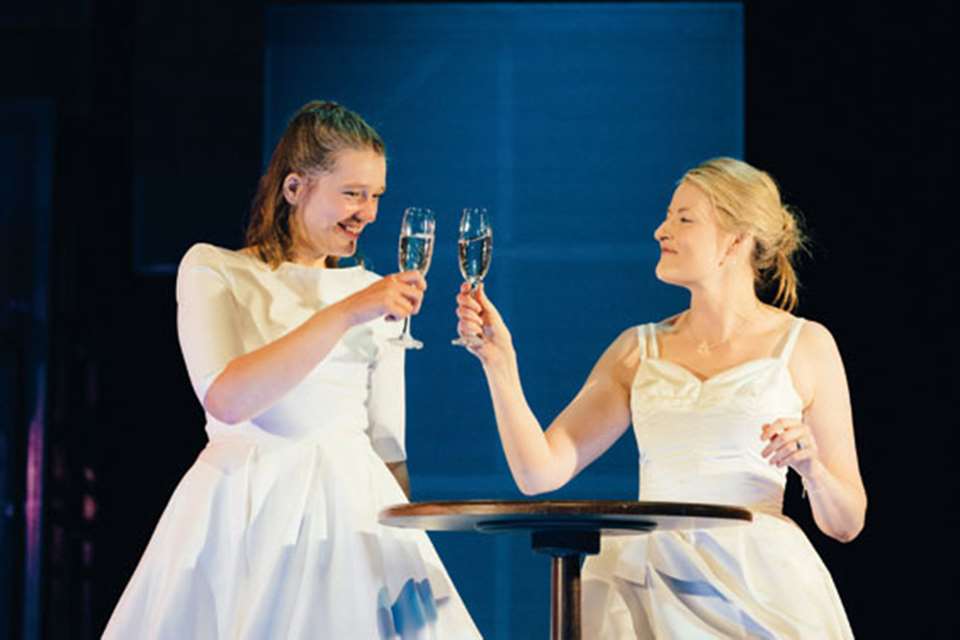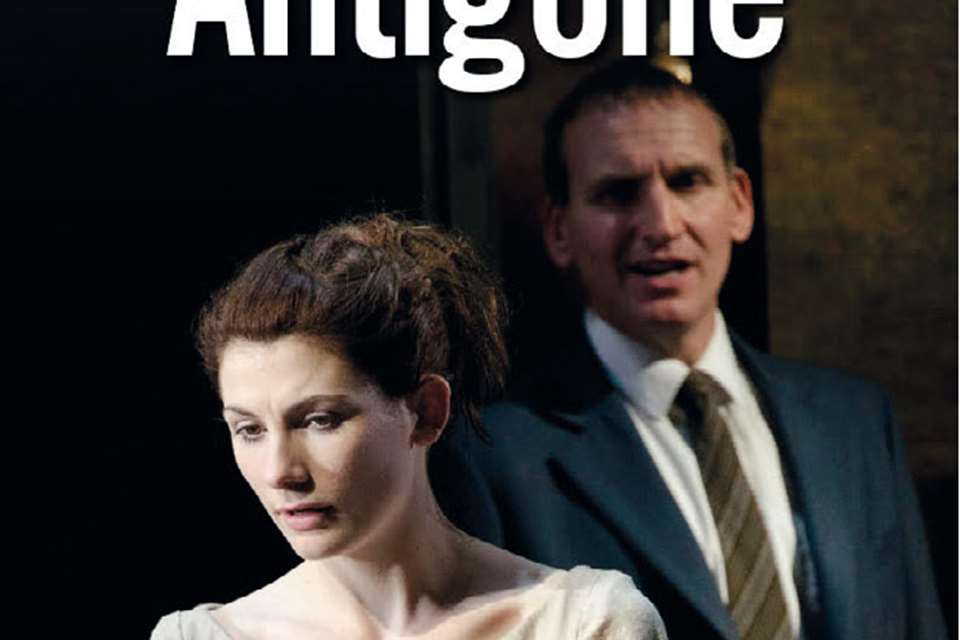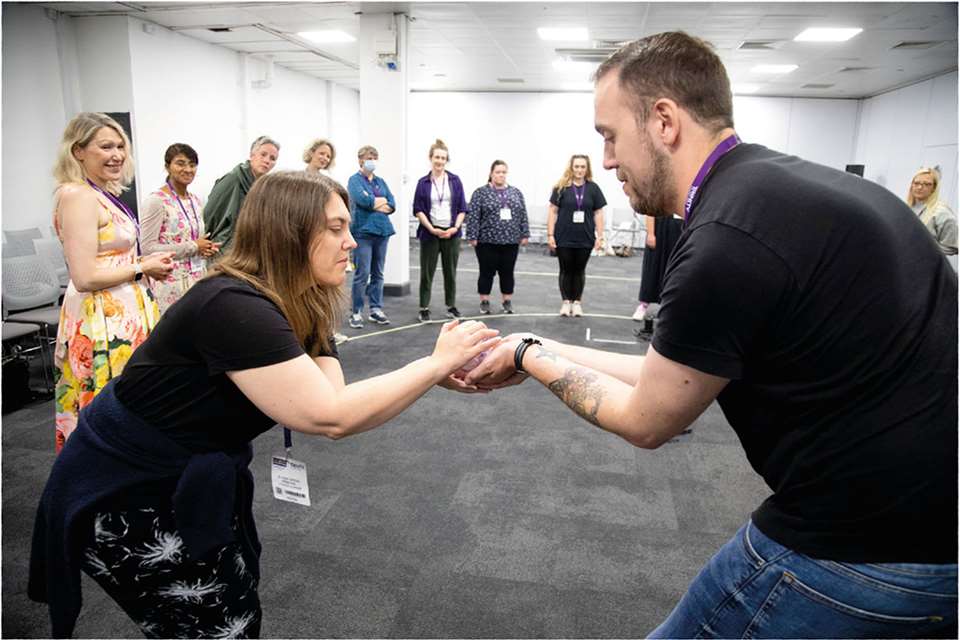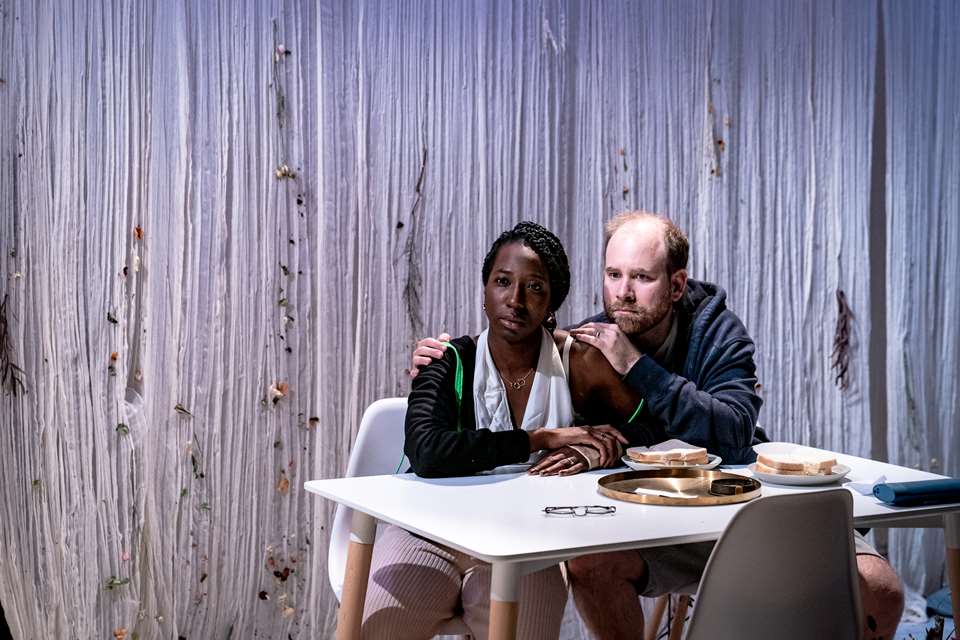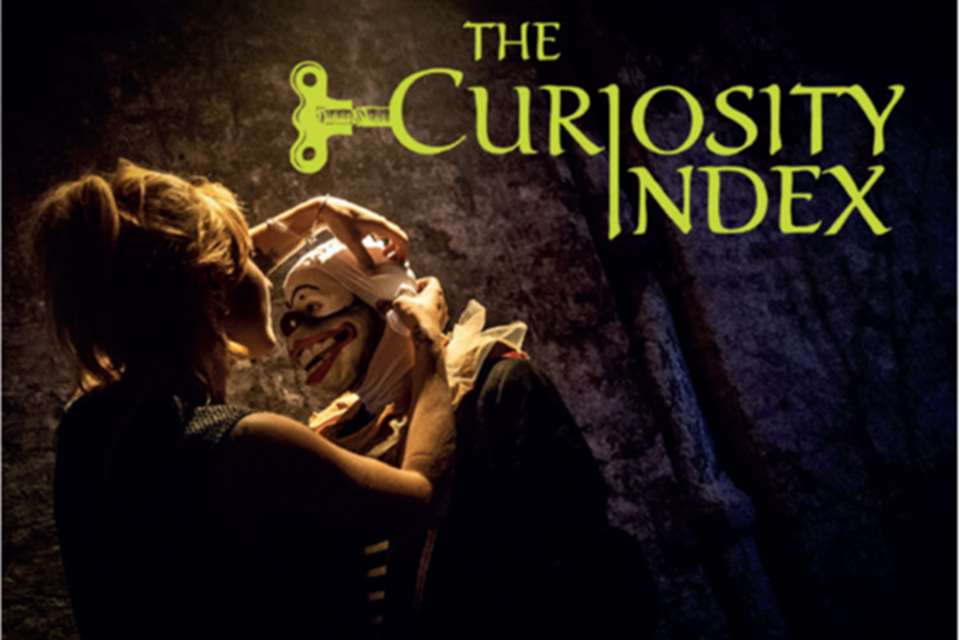Audiobook review: The Empty Space
Lucy Bellingham
Thursday, September 1, 2022
Lucy Bellingham reviews audiobook The Empty Space, read by Adrian Lester.
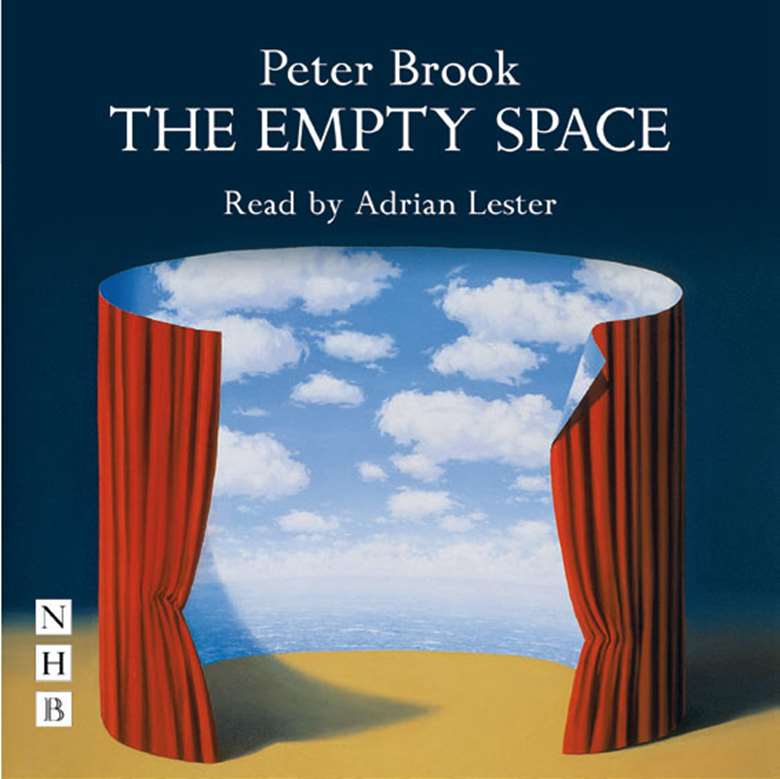
The wide-reaching influence of Peter Brook was acknowledged in recent months, when the theatre world reacted to news that the ground-breaking British director had passed away at the age of 96. His seminal work, The Empty Space, first published in 1968, re-defined the way in which we think about theatre and the performance space. It was originally based on lectures delivered by Brook at four universities and therefore naturally lends itself to an auditory format. The new audiobook version, read with skilful energy and conviction by actor Adrian Lester, enables teachers and students to engage with the book in a more visceral way.
The first few sentences of The Deadly Theatre are both recognisable and immediately provocative: ‘I can take any empty space and call it a bare stage. A man can walk across this empty space whilst someone else is watching him, and this is all that is needed for an act of theatre to be engaged.’
It is the perfect audio clip to share with post-16 students, to generate discussion about the fundamentals of theatre and performance. Students will certainly relate to Brook's musings on the differences between ‘deadly’ or ‘living’ theatre and this provides a useful starting point for evaluating live performance. In The Rough Theatre, Brook raises key questions about architecture and the theatre, which provides a useful context for students exploring theatre in less ‘traditional’ spaces or more immersive styles. In the final section, The Immediate Theatre, Brook shifts his focus from ‘different forms of theatre as they occur throughout the world’, to theatre as he ‘understands it, autobiographically’, drawing conclusions from within his own field of work. This section is arguably the most useful for teachers and students, as it provides a valuable insight into Brook's methodologies and how his work has been influenced, and informed by, a range of practitioners such as Brecht, Genet, Grotowski, Artaud, and Craig.
Lester's authoritative delivery is faultless. He leaves enough empty space in well-timed moments to reflect as you are listening. For teachers at all stages of their career, it is an essential listen in terms of exploring big ideas about theatre and provides a solid foundation for exploring Brook's methodology as a practitioner. In terms of using the audiobook as a resource in the classroom or drama studio, it is perhaps more suited to undergraduate students in terms of its intellectual challenge. However, with a little thought and planning, the audiobook can be used in bitesized chunks to provoke, pose questions, and stimulate debate around the fundamental aspects of theatre, which Brook explores so eloquently.


